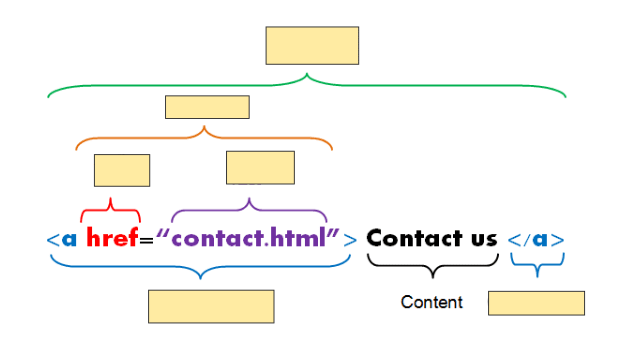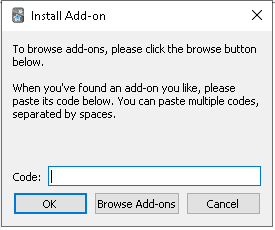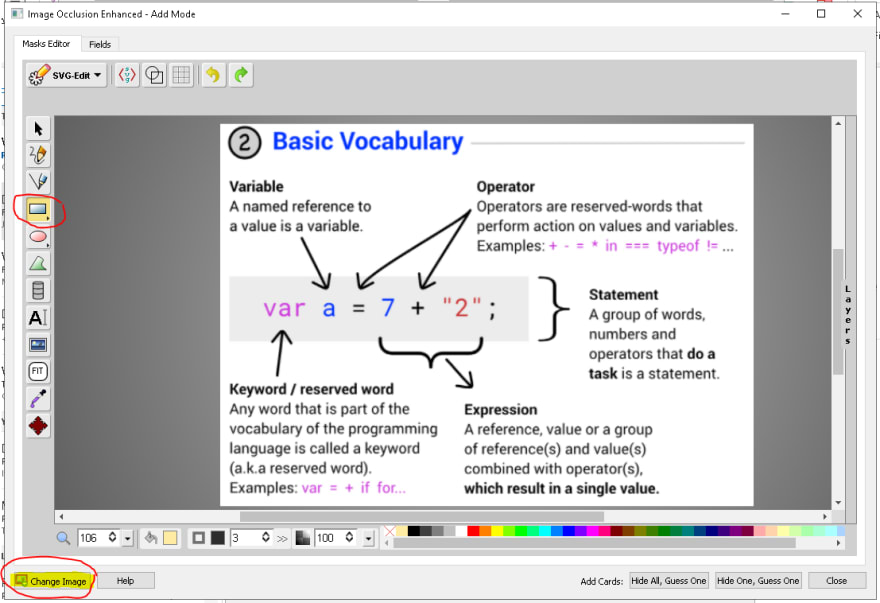First of all, if you'd rather watch a video, go check "Learn to Code with ANKI (flashcards technique)" on Youtube.
100Devs introduced me to Anki, and it has helped me so much in memorizing facts or concepts. I wish I'd known about it back in High School😅.
This learning method stems from the spacing effect, which explains how individuals learn more effectively if the material and reviews are spread out over time.
Many people don't know about two features that have been extra helpful to me—the Cloze and Image Occlusion Features. I'll go over one at a time and explain how practical these formats are when making (and learning from) digital flashcards.
Anki Cloze
Anki cloze is just a way of formatting your digital cards in Anki to blank out an essential piece of information. This blank then becomes the crucial part of your recall. The information around it helps you conceptualize (or guide) you to the answer.
Usually, while watching Leon's classes or reading any material, if I see a concept that I know I need to know but probably won't remember later, I create a flashcard for that.
For instance, I can create a flashcard asking, "What are function expressions" or I make a different card with gaps to fill.
Here you'll see there are two gaps (called multiple fields), indicated by the blue brackets. When creating the card, you can choose to guess one at a time or all at once.
Here's the answer to that card:
Anki Cloze is great for several reasons, mainly because it's faster to create. You copy, paste and then select what to cloze/blank.
If you want to know more about creating these flashcards, check out Anki's Manual about Cloze Deletion.
Anki Image Occlusion
Anki's Image Occlusion feature is similar to Cloze but used on an image and not text. It is excellent for memorizing information from slides or infographics, for example.
To use this feature, you need to download an add-on and install it on your Anki (it's a very straightforward process – more on this later).
Here's an example of an Anki I made when I started learning HTML.
I'll explain step by step how to download the add-on and how to create a card with this feature.
- Go to Tool, Click on Add-ons
- Select "Get Add-ons"
- A window will open asking you for a code. The code is on Anki's website further down where it says 'Download'
- Put the code on your Anki, click OK, and you should be able to use it now.
Creating an Anki card with Image Occlusion
You start as if you were creating a regular card. First, click on Add but then click on Basic and select Image Occlusion Enhanced.
A window with several options will appear (I haven't used those features yet), but you'll click on the image icon on top.
Select "Change Image" and then click on the rectangle button. Now you'll be able to start masking what you want.
To finish your card, you can choose to "hide one, guess one," "hide all, guess one," or "hide all, guess all"*.
*To "hide all, guess all" you need to select all the cards and group them. This can be done by holding down and individually selecting the layers which hide the answer; after selecting the layers, press 'G'. This will group them. Here on out Anki will treat them as a single card.
Conclusion
These Anki features are advantageous when used alongside other study techniques.
Hopefully, this guide has helped explain how it can help speed up your reviews and help you better recall your subject material in time for important exams.
I hope you have a great rest of the week!!
If you liked this article please follow me on Dev.to for my latest articles. I'm tweeting my journey on Twitter daily, this way to my LinkedIn, and this is my Youtube channel :)


















Top comments (0)